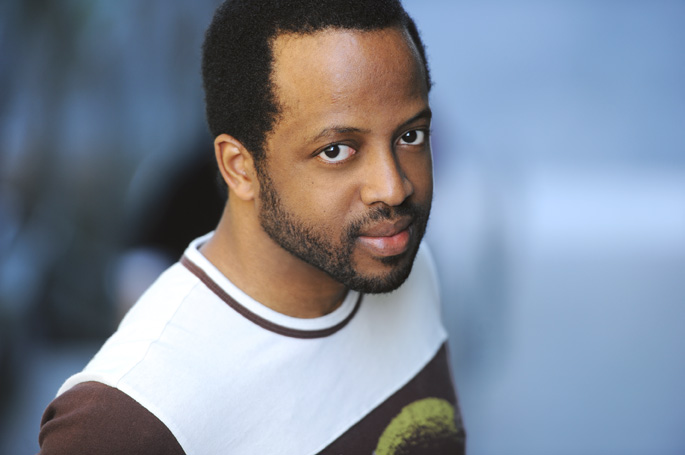BFF FILM & FESTIVAL BLOG
Sad Love Stories That Leave You Wanting More
Written by Diomarys Mendez
The theme of unrequited or unfulfilled love is one that has been uniquely retold time and time again. Stories of longing, lingering passion, and hope for an intangible love can evoke empathy, nostalgia, and melancholy.
Today, I will be recommending three foreign films with very different meditations on love, but that will all leave you wanting more.
In The Mood for Love (pictured above)
In the Mood for Love was directed by Wong Kar Wai in 2001. It is set in 1960s Hong Kong and follows two characters, Su Li-zhen (Maggie Cheung) and Chow Mo-wan (Tony Leung), who develop a tragic love story through their unfulfilled marriages.
The story is a powerful reflection on oppressed love and is both a technical achievement and a poetic musing on human longing. This atmospheric film effectively portrays quiet and intense desire by playing with time through repetition/slow-motion, framing, body language, and dialogue. Thus, the audience feels the gradual heightening of emotions boiling under the surface of these two characters’ interactions, but that ultimately leaves no trace.
Shoplifters
2018 Palme d'Or-winning film Shoplifters is a unique tale that explores the meaning of family. It raises the idea that one does not have to be limited to bloodlines, but can instead choose what family to belong to. Along with the overarching theme of what constitutes a family, the film also poses many important questions about poverty, government and societal neglect, and social norms.
The film begins with an impoverished family that essentially kidnaps a young girl and introduces her to their way of surviving. Although at times questionable, the actions taken by each member of the Shibata household stem from love.
This story is tender and complex, and director Hirokazu Kore-eda skillfully peels away the layers, revealing secrets about the family in a slow yet fluid pace. This film felt very authentic because it allowed the audience to observe the dynamic of this family in an environment free of judgment. In addition, the performances in Shoplifters were exquisite, and the cinematic language, although complicated, visually translated the narrative to the screen beautifully and seamlessly.
Kore-eda masterfully tells a story about compassion and love, challenging audiences to rethink the definition of family. Shoplifters is an honest yet tragic account about the lives of these complex characters, who briefly come together to embark on a journey where they discover the meaning of familial love.
Us and Them
“Happiness is not a story. Misfortune is,” Qing Jian muses in Us and Them. This cynical statement from the film encapsulates the tone and overall driving force of this story.
Rene Liu’s directorial debut tells the story of two characters, Qing Jian (Boran Jing) and Xiao Xiao (Dongyu Zhou), and their decade-long relationship, along with all the natural unfolding and undoing that happens during that time. Us and Them has many themes, but it mainly examines the contrast between the effects of personal change on an individual versus their relationships. The film shows how, at times, the steps necessary to grow can ironically result from mistakes made and connections lost.
The underlying tragedy of this story lies in the characters’ inability to communicate and express their love for one another, which eventually leads to them parting ways. Through flashbacks and moments of silence, we see how these two characters reflect on and cope with love lost, and the unbearable truth of not being able to turn back time to change the outcome. This nostalgic film reminisces on the sweet and sour seasons of love and essentially asks, If you had the chance to see a past lover one more time, what would you do and say?
Although very different, each of these three films interprets the many flavors that love has to offer and leaves audiences weeping and profoundly moved.
Are you ready to bring out the tissues and embark on these journeys?
Diomarys Mendez is a film lover and has dedicated her life to creating and providing more diverse narratives in the film and music scene. Diomarys has a background in Business, Music, and Theater and lives in New York City.
Jordan Peele's 'US' Feels Like a Cerebral Thriller!
written by Donaldo Prescod
After seeing Jordan Peele’s sophomore film Us (the second in his series of social thrillers, with the promise of three more similarly-themed films to come), you may exit the theater with your head spinning, searching for answers. But I recommend that you allow yourself to sit with those thoughts for a few hours, or days, even. Then try to process this film the way you would while decoding the otherworldly, slightly askew films of Lynch, Kubrick, and Aronofsky, and it starts to feel like a cerebral thriller (a new term I hope I just coined). Think: abstract and not literal, moody, quirky and offbeat, a genre which is great for black filmmakers, as we hopefully graduate more and more to audiences accepting our kind of strange.
Before I dive into my thoughts, theories, and feels, I need to geek out for a moment and mention a different kind of tethering that I noted (as opposed to the kind described in the film). Elizabeth Moss: when I first heard about the plot for Us and saw her in the trailer, immediately I thought, “Wait! She was in a similar film a few years ago! Will the world of Charlie McDowell’s The One I Love, which tackled the same idea of dealing with your doppelgänger, intertwine with the world of Us, like the interconnectedness of a Stephen King novel?” That’s probably wishful thinking for us film nerds. Still, it’s interesting to see Moss in both of these films which address the subject of doubles, though McDowell took a simpler approach to literally facing oneself, whereas Peele expanded on this idea with great depth and integrated the element of horror.
I had a visceral reaction within the first ten minutes of the film. Having grown up in the Santa Cruz area, I could relate to frequent family trips to the boardwalk. I never wanted to get on that rickety-sounding ride The Big Dipper, which always seemed like it was made up of barely-held-together old wood, though it was probably safe. But I do miss the corn dogs, and mastering the art of ski ball like a Kung Fu prodigy. And one can never forget the boardwalk at night. For starters, it’s creepy, just like how it was portrayed in the movie. It is especially eerie when that layer of fog rolls in and coats the beach, creeping onto the lip of the boardwalk, thus beginning the terror soon to befall young Adelaide when she meets her doppelgänger.
This film is wrestling with many themes, but overcoming trauma and PTSD was always at the forefront of Lupita Nyong’os’ performance. All the acting was solid but this film has her mark all over it. At every turn you saw a wave of emotions wash over her face: fear and rage as she tried to suppress a deep, dark secret; trying to maintain her composure as a loving mother and wife while keeping that secret bottled up. Then there was her performance as her other self: creepy, raspy, unforgettable voice combined with the rigid movements of a homicidal maniac. The physical and emotional depth she displayed was layered, and it was exciting to see her pull from a whole basket of acting skills we’ve never seen her demonstrate before.
Now back to the trauma: an incident occurs ten minutes into the film which arrests a child’s development, giving rise to her end goal as an adult, when she and the rest of her ‘tethered’ family and friends surface to kill the undeserving. And as referenced several times in the film, Jeremiah 11:11 says:
Therefore thus saith the Lord, Behold, I will bring evil upon them, which they shall not be able to escape; and though they shall cry unto me, I will not hearken unto them.
After evil was brought upon, the tethered joined hands to complete the Hands Across America mission. Though a bit strange to behold, it represents one of the last, happy moments embedded in young Adelaide’s mind before her traumatic incident. And lastly, I have to give a huge shout out to Peele for taking a 90’s West Coast classic by the Luniz, slowing the beat down and making it creepy as fuck.
Us is definitely that kind of film with replay value, where a new mystery is discovered in each viewing so that as we gradually dissect more and more of it, lets us appreciate the unconventional, weirdo aspect of an instant cult classic.
Donaldo Prescod is an award winning filmmaker from Boston, Mass and currently based in Brooklyn. His film Black People Are Dangerous won Best Narrative Short at the Urban Film Festival and the Honorable Mention Award at the 10th Annual Bushwick Film Festival.










